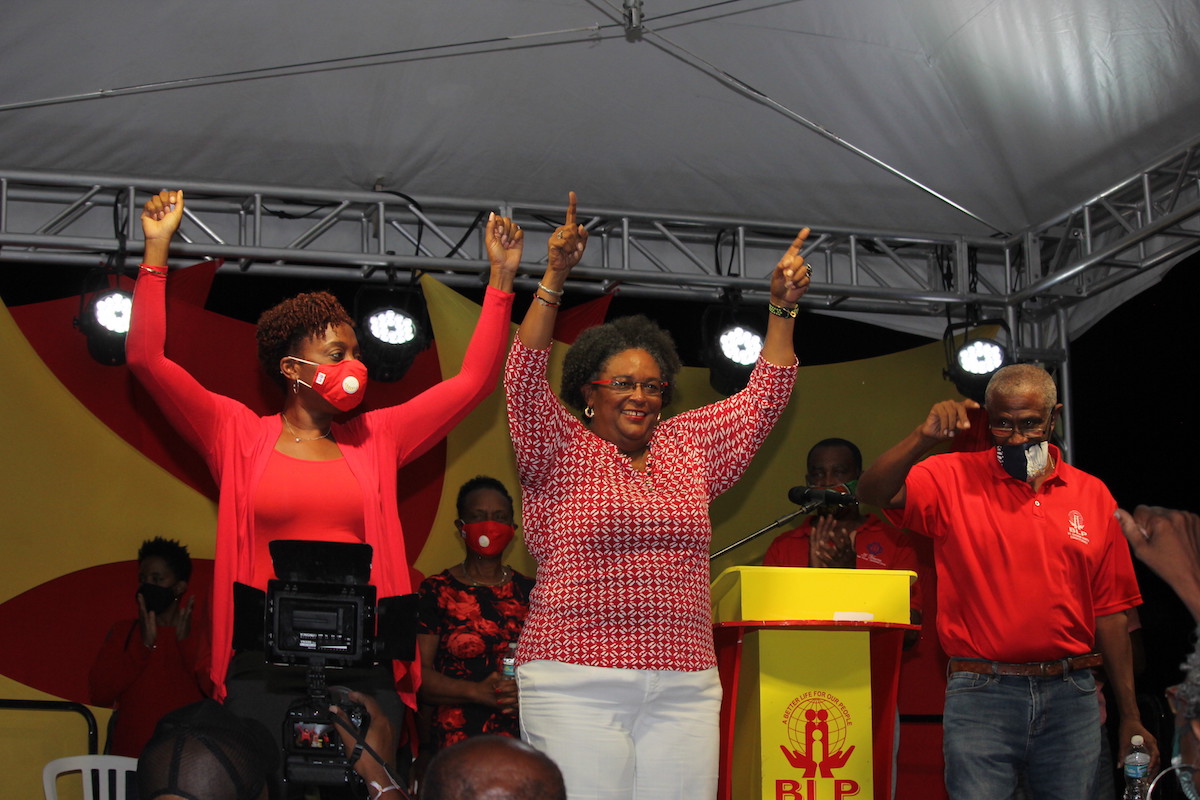Disclaimer: The views and opinions expressed by this author are their own and do not represent the official position of the Barbados Today.
by Dennis De Peiza
The involvement of trade unions in partisan politics is of historical debate in which the integrity and the independence of labour unions are called into question. There is the widely held view that organized labour has a mandate to function as an independent body which represents the interest of workers.
In giving effect to political action, it is felt that the interest of workers is best served where trade unions organize and mobilize themselves under a national body or confederation for the purpose of political bargaining and social and economic policy development.
In summary, the political action of trade unions is basically that of securing transformation in the workers’ interest with the full knowledge that they are doing so in a state of self-governance and in an environment where they are free from interference from the state.
Some will argue to the contrary and maintain that there is a genuine need for a state of political unionism to exist. There is the suggestion that the trade union which has an alignment with a political party stands to benefit from the force of the party’s efforts that may coincide with the trade union’s agenda.
This may be a matter of conjecture and speculation, as the possibility exists that there can be a likely price for tradeoffs, including compromising the integrity, stability and vibrancy of the trade union.
Trade unions that remove themselves from the control of political parties are better placed to pursue their agenda without a sense of compromising themselves and losing their objectivity. The fact that the interest of labour can best be represented where the concept of collectivism is accepted and embraced would lead to the development of a consciousness that the alignment to a political party is unnecessary.
Credence is to be given to the position of trade unions which choose to consolidate and identify under a national trade union centre. By so doing, they are expressing their desire to operate as a unified and independent force to pursue the agenda of attaining economic and social reforms.
It is likely that there will be several negative perceptions developed in the minds of persons about the sincerity of the intentions of trade unions which take to aligning themselves with political parties.
There are possible suggestions to be voiced about the issue of divided loyalty and commitment to both the political and trade union interests, as well as the demonstration of personal objectivity and fairness in the decision-making process. There is some comfort in the fact that where trade unions take to consolidating themselves under the umbrella of the national trade union centre, which is an autonomous body, they enjoy both legal and political recognition. It can be contended that in this way, trade unions are better placed to collectively oppose government’s policies.
Political unionism is the means through which the labour movement can develop and maintain a strong presence within the workplace. This can be achieved, provided that trade union militancy remains at the core of political unionism. Trade unions should therefore not be compromising on the agenda that speaks to the right to collective bargaining, the participation of labour in the decision-making process, social dialogue and tripartism; at the centre of which are consultation, dialogue and collaboration.
The trade unions’ leadership should be mindful that political unionism is about helping to expand the purchasing power of workers as consumers, promoting the development and redistribution of social policies, promoting social equity, securing full employment, improving wages and salaries, addressing income distribution in an effort to alleviate poverty, and to generally promote and protect the welfare and interest of working-class people. It is important that as part of its political role, trade unions work to influence public spending.
It is to be understood that the broader agenda to be promoted under political unionism would be the attention paid to parliamentary democracy, where constitutional and political reform are seen as prominent issues.
In the practice of political unionism, trade unions must maintain their ability to champion labour’s causes and workers’ issues without having to compromise themselves. For example, there should be no compromising on the freedom and right of trade unions to take strike action. There should never be any doubt about the institutional autonomy and independence of trade unions, whether operating individually or under the umbrella of the trade union national centre.
It is to be expected that different opinions will be expressed on the involvement of trade unions in politics. Much of this will be based on criticisms and speculations. By remaining united, committed to denouncing any divided loyalty and by undertaking to operate on the principle of transparency, trade unions under the umbrella of a national trade union centre, would certainly be in a better position to represent the political agenda of the labour movement.
The national trade union centre with its mandate is better placed to press and demand from the government to deliver on its promises. For the labour movement, this is certainly a better position than that of an individual trade union organization aligning itself to a political party, and being required to follow its dictates.
The practice of political alignment is nothing short of ‘politics of inclusion’ at work.
As a solution to this political insider trading, which in essence has the potential to divide labour, the answer may well lie in having the national trade union centre being represented in the Senate.
This would certainly guarantee labour a seat at the table which invariably would be a strategic and decisive move towards the improvement in the level of political governance.
Dennis De Peiza is a Labour Relations & Employee Relations Consultant Regional Management Services Inc. Visit our Website: www.regionalmanagement services.com




